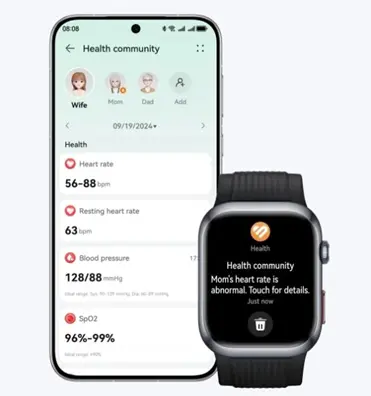Maintaining a healthy heart is crucial for seniors’ well-being, as heart disease becomes more prevalent with age. Dietary choices play a pivotal role in supporting heart health, providing necessary nutrients, and reducing the risk of cardiovascular issues. This guide offers valuable dietary advice that can help seniors maintain a healthy heart, promoting longevity and overall vitality. Seniors can benefit immensely from making mindful food choices and adopting a balanced diet.
Why is a Heart-Healthy Diet Essential for Seniors?
What Are the Risks of Poor Diet for Seniors’ Heart Health?
A poor diet can lead to numerous health complications for seniors. High intake of saturated fats, trans fats, and cholesterol can result in clogged arteries, increasing the risk of heart attacks and strokes. Eating habits that contribute to obesity and diabetes further escalate cardiovascular disease risks. Lack of essential nutrients weakens the heart, making it more susceptible to ailments. Hence, seniors need to avoid unhealthy diets and prioritize their heart health.
How Does a Proper Diet Help Lower Heart Disease Risk?
A proper diet lowers heart disease risks by providing essential nutrients that support heart function. Consuming foods high in omega-3 fatty acids, fiber, vitamins, and minerals helps reduce bad cholesterol levels and maintain good cholesterol. Appropriate dietary habits also aid in managing blood pressure and keeping blood sugar levels under control. Eating heart-friendly foods, combined with regular physical activity, significantly reduces the likelihood of heart-related ailments in seniors.
What Nutrients Should Seniors Focus on for Heart Health?
Seniors should prioritize nutrients like omega-3 fatty acids, fiber, antioxidants, and potassium for heart health. Omega-3s, found in fish and flaxseeds, reduce inflammation and lower the risk of heart disease. Fiber helps regulate cholesterol levels and improves digestion. Antioxidants in fruits and vegetables help prevent oxidative stress. Potassium aids in maintaining healthy blood pressure levels. Seniors should focus on a balanced diet that includes a variety of nutrient-rich foods to support their heart.
What Are the Best Foods for Seniors’ Heart Health?
Fruits and Vegetables
Fruits and vegetables are rich in vitamins, minerals, fiber, and antioxidants, making them essential for heart health. They help lower blood pressure, reduce cholesterol levels, and improve arterial function. Seniors should include a variety of colorful fruits and vegetables like berries, oranges, spinach, and broccoli in their diet. These foods provide vital nutrients that protect the heart and enhance overall health.
Whole Grains and Fiber
Whole grains such as oats, brown rice, quinoa, and whole wheat are excellent sources of fiber. Fiber helps lower bad cholesterol levels, regulate blood sugar, and support digestive health. Incorporating whole grains into meals can reduce the risk of heart disease. Seniors should aim to replace refined grains with whole grains to take advantage of these heart-healthy benefits.
Healthy Fats
Healthy fats found in avocados, nuts, seeds, and olive oil are crucial for heart health. These fats help raise good cholesterol (HDL) and lower bad cholesterol (LDL). Omega-3 fatty acids, particularly from fatty fish like salmon, have heart-protective properties. Seniors should include these healthy fats in their diets while avoiding trans fats and excessive saturated fats to keep their hearts healthy.
How Can Seniors Limit Unhealthy Foods for Better Heart Health?
What Processed Foods Should Seniors Avoid for Heart Health?
Processed foods are often high in unhealthy fats, added sugars, and sodium, which can be detrimental to heart health. Seniors should avoid foods like processed meats, canned soups, packaged snacks, and sugary beverages. These items can lead to weight gain, high blood pressure, and increased cholesterol levels. By cutting down on processed foods, seniors can significantly improve their heart health. Additionally, seniors can monitor their heart health more effectively with devices like the huawei smart watch d2, which tracks vital signs and provides health insights to support a healthier lifestyle.

How Does Salt and Sugar Affect Heart Function in Seniors?
Excess salt and sugar intake can negatively impact heart function. High salt consumption leads to elevated blood pressure, straining the heart and arteries. Excess sugar contributes to obesity, inflammation, and high triglyceride levels, increasing the risk of heart disease. Seniors should monitor and reduce their intake of salt and sugar by choosing whole, unprocessed foods and cooking at home.
Why Is It Important to Cut Back on Red Meat for Heart Health?
Red meat contains high levels of saturated fats, which can raise bad cholesterol levels and increase heart disease risk. Regular consumption of red meat is linked to heart-related issues due to its fat and cholesterol content. Seniors should limit their intake of red meat and opt for lean proteins like poultry, fish, beans, and legumes. These healthier protein sources support heart health without the negative effects associated with red meat.
How Can Seniors Create a Heart-Healthy Meal Plan?
Creating a heart-healthy meal plan involves incorporating various nutrient-dense foods while avoiding harmful ones. Seniors should focus on a balanced diet that includes plenty of fruits, vegetables, whole grains, lean proteins, and healthy fats. Plan meals to include colorful and diverse foods, ensuring all essential nutrients are covered. Reducing salt and sugar intake, avoiding processed foods, and moderate portion control also contribute significantly to heart health.
Conclusion
Prioritizing a heart-healthy diet can have profound benefits for seniors, reducing the risk of cardiovascular diseases and improving overall wellbeing. By incorporating nutrient-rich foods, avoiding processed and unhealthy items, and creating balanced meal plans, seniors can maintain their heart health effectively. Making conscious dietary choices is a powerful step towards a healthier, longer life, ensuring seniors can enjoy their golden years to the fullest.
